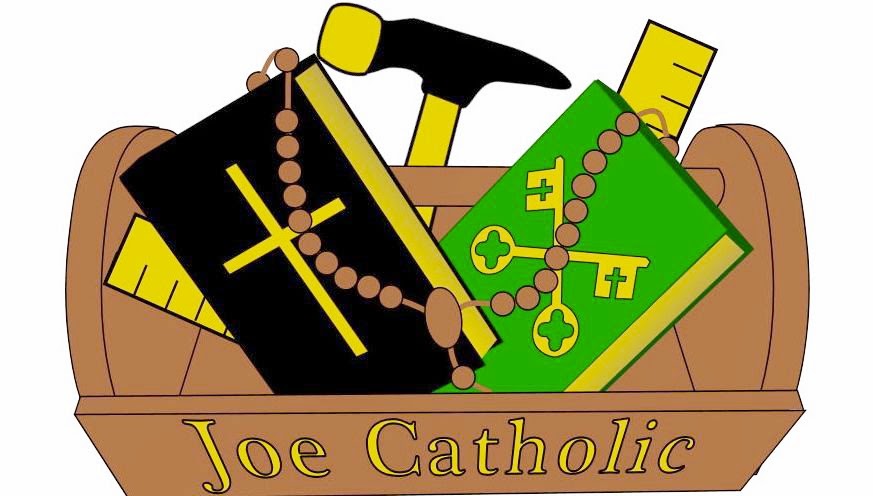 |
| Via Cargo Collective |
Matthew 8:18–22
18 Now when Jesus saw great crowds around him, he gave orders to go over to the other side. 19 And a scribe came up and said to him, “Teacher, I will follow you wherever you go.” 20 And Jesus said to him, “Foxes have holes, and birds of the air have nests; but the Son of man has nowhere to lay his head.” 21 Another of the disciples said to him, “Lord, let me first go and bury my father.” 22 But Jesus said to him, “Follow me, and leave the dead to bury their own dead.”
Catholic Exegesis:
The Second Vatican Council teaches that if we are to derive the true meaning from the sacred texts, attention must be devoted “not only to their content but to the unity of the whole of Scripture, the living tradition of the entire Church, and the analogy of faith. […] Everything to do with the interpretation of Scripture is ultimately subject to the judgment of the Church, which exercises the divinely conferred communion and ministry of watching over and interpreting the Word of God” (Dei Verbum, 12).
St. John Paul II, when he promulgated the Catechism of the Catholic Church, explained that the Catechism "is a statement of the Church's faith and of catholic doctrine, attested to or illumined by Sacred Scripture, the Apostolic Tradition and the Church's Magisterium." He went on to "declare it to be a sure norm for teaching the faith and thus a valid and legitimate instrument for ecclesial communion" (Fidei Depositum).
Cited in the Catechism:
Passages from this Gospel reading are not cited in the Catechism.
Commentary
Following Christ is not easy
8:18–22. From the very outset of his messianic preaching, Jesus rarely stays in the same place; he is always on the move. He “has nowhere to lay his head” (Mt 8:20). Anyone who desires to be with him has to “follow him”. This phrase “following Jesus” has a very precise meaning: it means being his disciple (cf. Mt 19:28). Sometimes the crowds “follow him”; but Jesus’ true disciples are those who “follow him” in a permanent way, that is, who keep on following him: being a “disciple of Jesus” and “following him” amount to the same thing. After our Lord’s ascension, “following him” means being a Christian (cf. Acts 8:26). By the simple and sublime fact of Baptism, every Christian is called, by a divine vocation, to be a full disciple of our Lord, with all that that involves.
The evangelist here gives two specific cases of following Jesus. In the case of the scribe our Lord explains what faith requires of a person who realizes that he has been called; in the second case—that of the man who has already said “yes” to Jesus—he reminds him of what his commitment entails. The soldier who does not leave his position on the battlefront to bury his father, but instead leaves that to those in the rearguard, is doing his duty. If service to one’s country makes demands like that on a person, all the more reason for it to happen in the service of Jesus Christ and his Church.
Following Christ, then, means we should make ourselves totally available to him; whatever sacrifice he asks of us we should make: the call to follow Christ means staying up with him, not falling behind; we either follow him or lose him. In the sermon on the mount (Mt 5–7) Jesus explained what following him involves—a teaching that we find summarized in even the most basic catechism of Christian doctrine: a Christian is a man who believes in Jesus Christ—a faith he receives at Baptism—and is duty bound to serve him. Through prayer and friendship with the Lord every Christian should try to discover the demands which this service involves as far as he personally is concerned.
8:20. “The Son of man”: this is one of the expressions used in the Old Testament to refer to the Messiah. It appeared first in Daniel 7:14 and was used in Jewish writings in the time of Jesus. Until our Lord began to preach, it had not been understood in all its depth. The title “the Son of man” did not fit in very well with Jewish hopes of an earthly Messiah; this was why it was Jesus’ favourite way of indicating that he was the Messiah—thereby avoiding any tendency to encourage Jewish nationalism. In the prophecy of Daniel just mentioned this messianic title has a transcendental meaning; by using it Jesus was able discreetly to proclaim that he was the Messiah and yet avoid people interpreting his role in a political sense. After the Resurrection the apostles at last realized that “Son of man” meant nothing less than “Son of God”.
8:22. “Leave the dead to bury their own dead”: although this sounds very harsh, it is a style of speaking which Jesus did sometimes use. Here the “dead” clearly refers to those whose interest is limited to perishable things and who have no aspirations towards the things that last forever.
“If Jesus forbade him,” St John Chrysostom comments, “it was not to have us neglect the honour due to our parents, but to make us realize that nothing is more important than the things of heaven and that we ought to cleave to these and not to put them off even for a little while, though our engagements be ever so indispensable and pressing” (Hom. on St Matthew, 27).
Source: The Navarre Bible: Text and Commentaries. Biblical text from the Revised Standard Version and New Vulgate. Commentaries by members of the Faculty of Theology, University of Navarre, Spain.
Published by Four Courts Press, Kill Lane, Blackrock, Co. Dublin, Ireland, and by Scepter Publishers in the United States. We encourage readers to purchase The Navarre Bible for personal study. See Scepter Publishers for details.
"Ignorance of Scripture is ignorance of Christ." St Jerome


_-_James_Tissot_-_overall.jpg)

